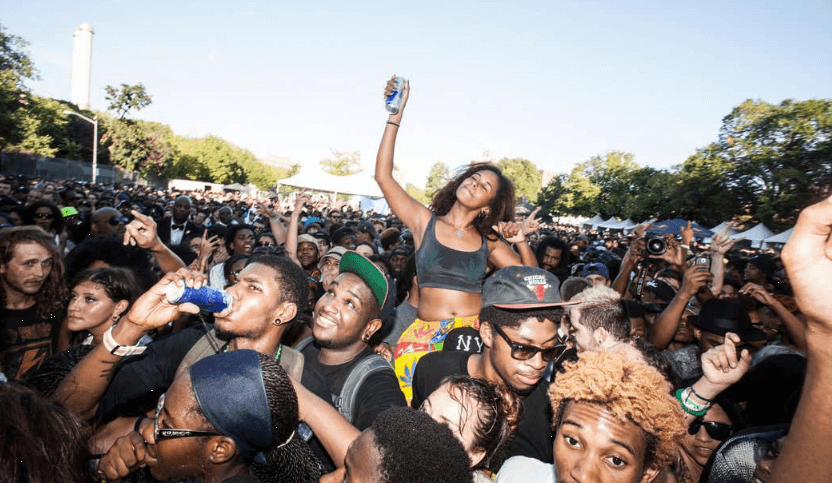According to TV Over Mind, Afropunk refers to a community of people from many backgrounds and their choices in music, movies, art, sports, and other activities. If you break down the word, you can get a general idea of who it represents: Afro refers to the African heritage of an Afropunk, whereas punk can refer to the rebelliousness, DIY, underdog nature of this subculture. The Afropunk Festival is a gathering of those who wish to celebrate the unity of Afropunk culture through music, art, movies, and skateboarding. This year, it started on Saturday, December 30th and ended on Sunday, December 31st in Johannesburg, South Africa.
It has come a far way from its humble beginnings. The Festival originally was not international, instead taking place at the Brooklyn Academy of Music exclusively. However, cities on the roster in the past couple of years include Atlanta, London – and of course, Johannesburg. 2017 is the first year that South Africa is included in the Afropunk Festival. The Festival finds its roots in James Spooner’s documentary film, Afro-Punk. The 2003 release explored the lives of black people within a white-dominated punk subculture. Spooner first realized the need for this film when he was examining the punk scene in New York City. After noticing that there were few people of color in the punk community, Spooner decided to research further.

The film followed the lives of four African Americans who consider themselves inseparable from punk rock culture. In addition, James Spooner scored exclusive interviews with some punk bands, including the Dead Kennedys and Fishbone. These interviews helped to expose the issues faced by non-whites in a subculture that is almost wholly dominated by whites. Spooner’s film was featured at the Toronto International Film Festival, the Pan-African Film and Arts Festival, and the American Black Film Festival. It received many awards and other recognition, bringing Afro-Punk to international prominence. Spooner then decided to start a website based on the film that focused on black punk rock culture. Much of the conversation that took place on the website surrounded the band Stiffed and their lead singer, Santi White.
Santi White’s manager, Mathew Morgan, was contacted by James Spooner in late 2003. Spooner wanted to get Stiffed to perform after one of the screenings of Afro-Punk. Morgan decided that it would be a good career move – and the show ended up being very successful. So, shortly thereafter, Spooner and Morgan collaborated to create the Liberation Sessions (a party that promoted black artistry).
Later, Spooner and Morgan worked together again to start the first Afropunk Festival in 2005. The festival was designed to be a place for black punks to enjoy freedom of expression and a sense of community. The subculture tends to ignore their presence, so this was a boon for Afropunks. However, as time went on, and the audience of the festival began to increase, the performances started to drift toward other genres (such as neo-soul).
This drift actually caused co-founder James Spooner to leave after the 2007 festival. He left due to the increasing presence of mainstream culture, and the dwindling attendance of actual punks. Spooner felt that the festival had deviated too far from its original values, and he elected to not be involved in 2008. However, Jocelyn Cooper took his place in 2009. Since then, the festival has grown quite quickly. Many sponsorships, better marketing, and international involvement have followed Cooper’s – an ex-Universal executive – involvement in the festival. In fact, attendees increased from 2500 in Brooklyn alone, to over 90,000 in multiple cities!
The Afropunk Festival, which has featured performers such as Suicidal Tendencies, Lauryn Hill, Eve, Lolawolf, Lenny Kravitz, and Gary Clark, Jr., will likely continue to grow as more people hear their message. After this year’s festival in Johannesburg, the sub-subculture will continue to be brought more into the public light, giving a voice to those who were once ignored. James Spooner may not be involved, but we must thank him for planting the seed for this awesome festival with his documentary back in ’03.
Source: www.tvovermind.com


